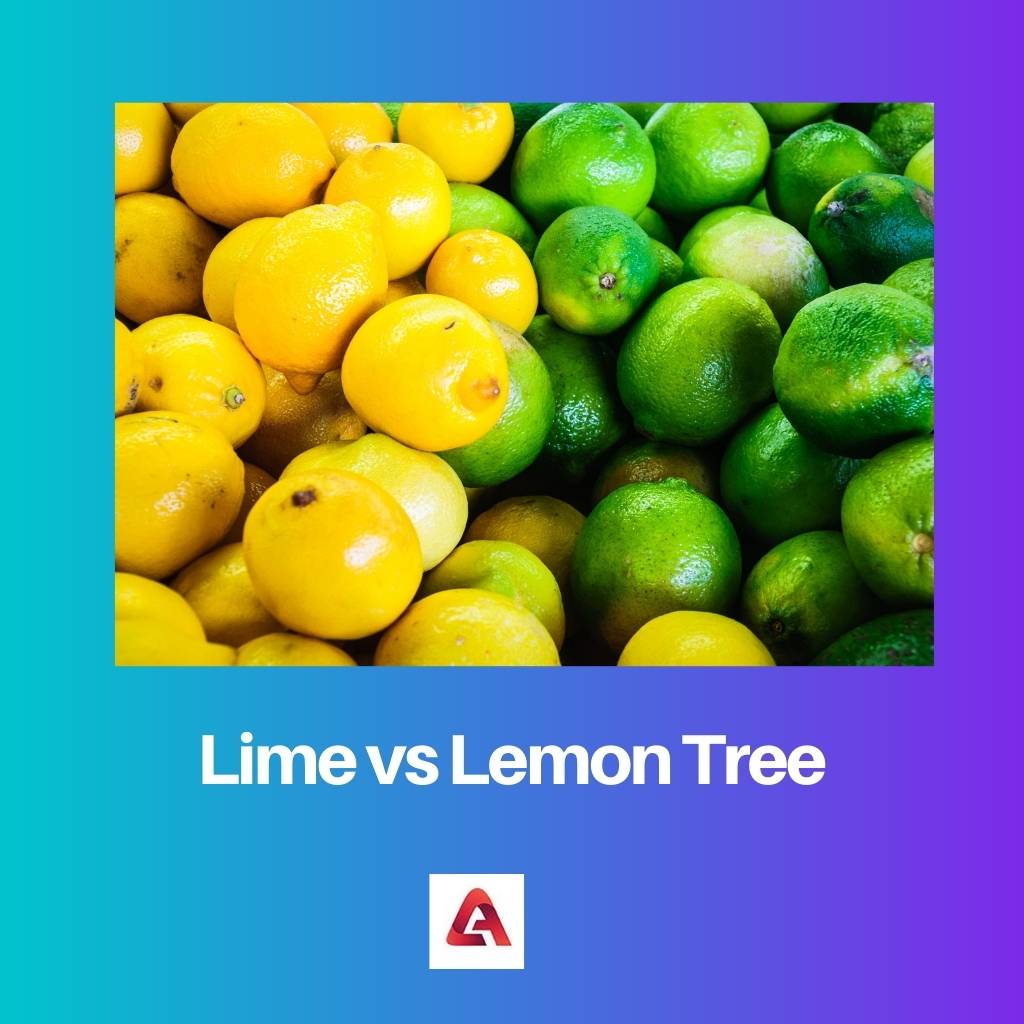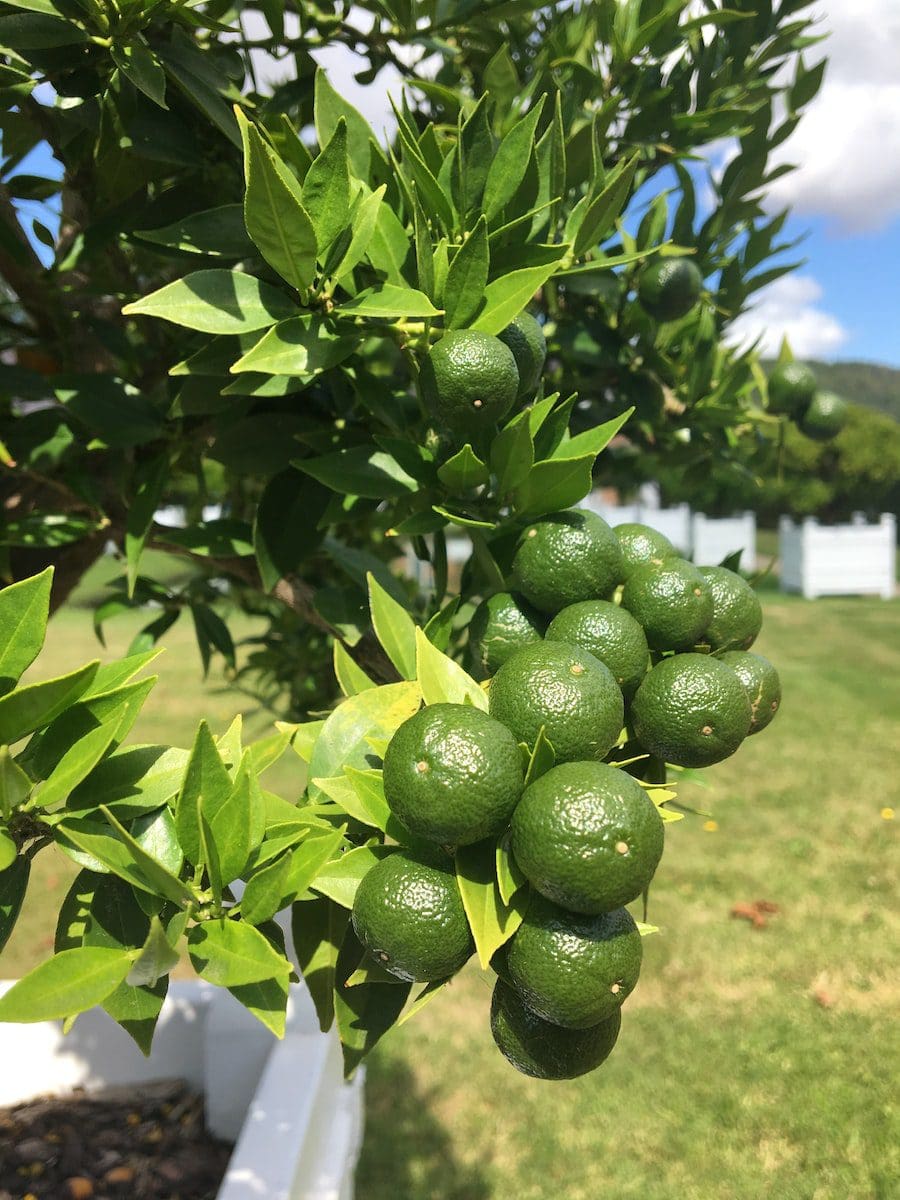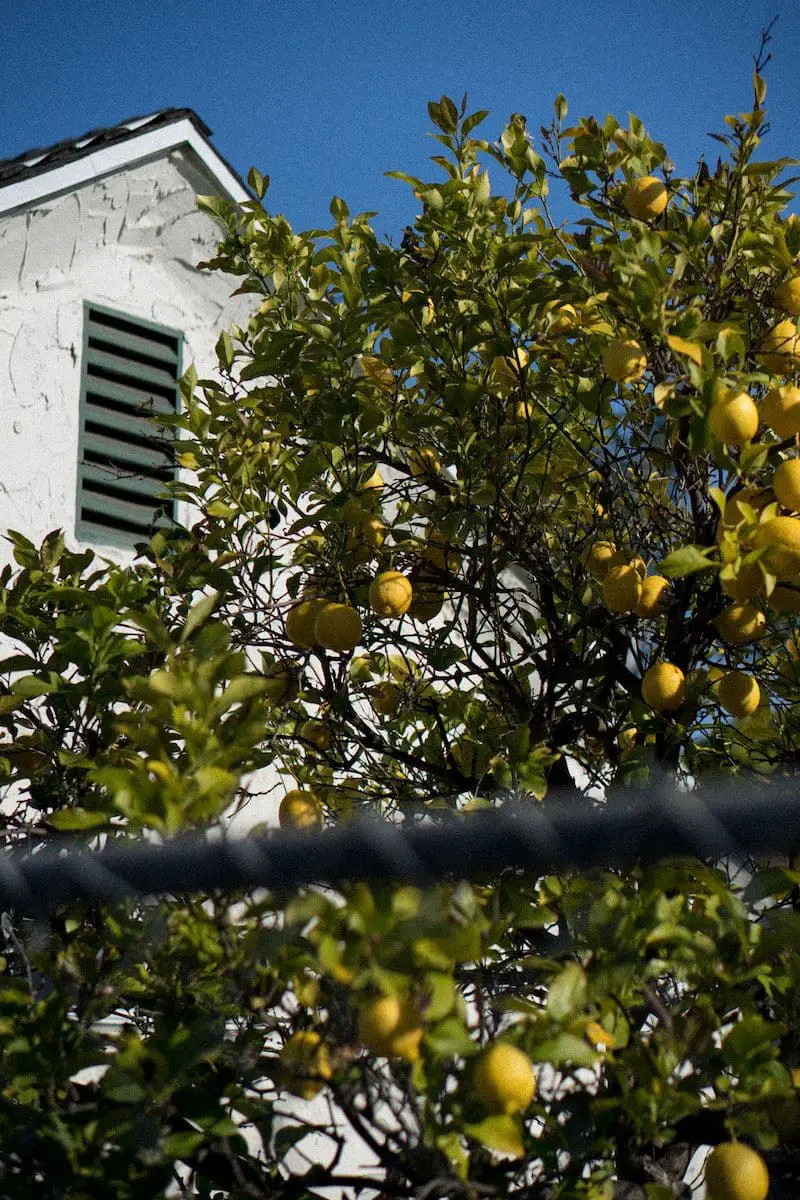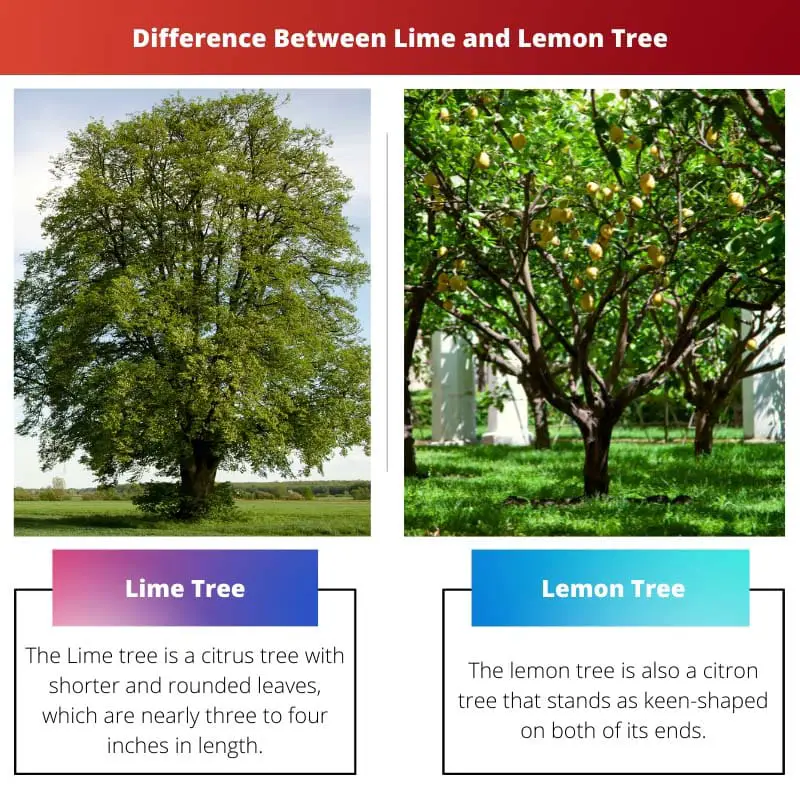Lime and lemon trees may sound similar, but eventually, they are not. No doubt that lime and lemon are enriched and highly acidic citrus fruits, but they not only differ in appearance but they have different properties.
Key Takeaways
- The lime tree produces small, green, and acidic fruits with thin skin, while the lemon tree produces larger, yellow, and less acidic fruits with thick skin.
- Lime tree leaves are smaller and thinner than lemon tree leaves and have a distinctive aroma.
- Lime trees prefer warm climates and are more sensitive to frost, while lemon trees can tolerate cold weather and frost.
Lime vs Lemon Tree
Lime trees produce small greenish-yellow fruits that are acidic in taste and are rarely consumed fresh. The leaves of lime trees are also small in size. Lemon trees have larger leaves compared to lime trees, and their fruit is yellow in color with a sour taste. Lemons are widely used in cooking.

The Lime tree is a citrus tree with shorter and rounded leaves nearly three to four inches in length. It is comparatively shorter and grows to nearly 13 inches at its fullest length.
The lemon tree is also a citron tree that stands keen-shaped on both of its ends. The leaves of this tree are comparatively large, nearly five inches long, accompanied by a citrus scent.
Comparison Table
| Parameters of Comparison | Lime Tree | Lemon Tree |
|---|---|---|
| Height of tree | It can develop up to 13 feet | It can develop up to 20 feet |
| Fruit | lime, which is rounded and greenish in color | lemon, which is Football-shaped and slightly elliptical |
| Leaves | emit a lime scent and develop nearly three to four inches in length | emit strong lemon smell and grown about five inches in length |
| What is it? | The Lime tree is a citrus tree with shorter and rounded leaves, which are nearly three to four inches in length. | The lemon tree is also a citron tree that stands as keen-shaped on both of its ends. |
| Bark | Lime tree bark has a slight lime scent | No perceptible smell is observed |
What is Lime Tree?
The lime tree is a citron tree that bears the acidic citrus fruit called lime. Lime is rounded and greenish with thinner skin and is considered a good source of vitamin C and rich in calcium.
The lime tree is the bearer of lime fruit which have the following specifications:
- Vitamin C- 29mg per 100g
- Magnesium- 6mg per 100g
- Vitamin A- 50 IU per 100g

What is Lemon Tree?
The lemon tree is a citron tree that bears the acidic citrus fruit called lemon. Lemon is football-shaped and slightly elliptical with pointed ends.
Lemon trees are the bearer of lemon fruit which is sour and has the following specifications:
- Vitamin C- 53mg per 100g
- Magnesium- 8mg per 100g
- Vitamin A- 22 IU per 100g

Main Differences Between Lime and Lemon Tree
- Although, lime and lemon tree have quite similar leaves, the size or the length of the leaves vary to that of the size of the tree.
- Differentiating between lime and the lemon tree is quite tricky, but with the correct knowledge, you can recognize them within seconds.


I thoroughly enjoyed this article, the information is extensive and valuable.
This was a fantastic read.
I couldn’t agree more, the detail was impressive.
The comparison between lime and lemon trees was well-articulated and enlightening.
The details were presented effectively.
I couldn’t agree more, very well-written.
Great post! The main differences between lime and lemon trees are now crystal clear.
It sure was, very informative.
This was an excellent explanation.
The information provided opened my eyes to the distinctions I never knew existed.
This is an excellent educational resource.
Incredibly informative post!
The detailed comparison between lime and lemon trees is quite intriguing.
I agree, the distinction is fascinating.
Learning about lime and lemon trees was very eye-opening.
A very informative article, I have gained a lot of knowledge in citrus trees.
This was indeed educational.
I appreciate the detailed breakdown of the differences between lime and lemon trees.
This is incredibly informative.
I have always been curious about the differences between lime and lemon trees. This post answered all of my questions.
This is an enlightening read.
This was an incredibly interesting comparison.
The article provided great insights into the distinctions between lime and lemon trees. A wealth of information!
I second that, this is valuable information.
Absolutely, very educational.
The nutritional information provided about lime and lemon trees is very enlightening.
I agree, the nutritional value is impressive.